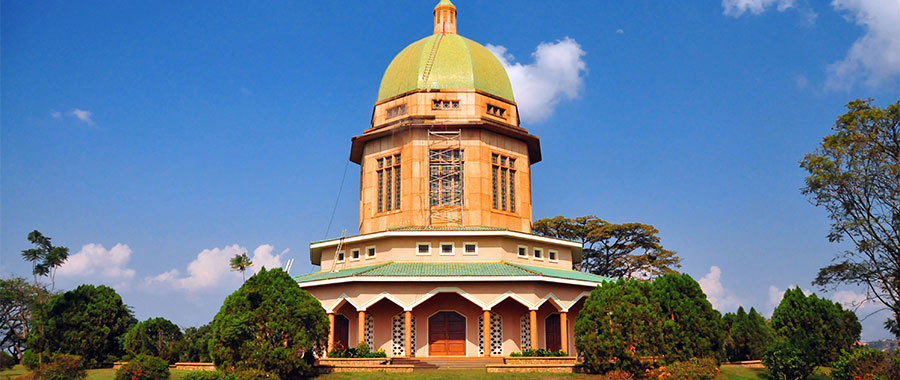Prayer, a universal phenomenon transcending cultures and religions, occupies a central role in the Bahá’í Faith. It is viewed not merely as a ritualistic practice but as a profound medium for spiritual transformation and communal unity. In Uganda, the Devotional Gatherings epitomize this transformative power, fostering a unique environment where diverse individuals converge to explore spirituality through collective prayer and reflection. This article delves into the significance of these gatherings, illuminating their role in societal healing and personal growth, while also addressing the deeper spiritual undercurrents that captivate attendees.
At the heart of Bahá’í teachings lies the conviction that prayer is an essential conduit for connecting with the Divine. It serves not only as a personal dialogue with God but also as a catalyst for community cohesion. In Uganda, Devotional Gatherings exemplify this duality, inviting individuals from various backgrounds to come together and share in the experience of collective worship. Such gatherings provide a sanctuary where participants engage in prayers, hymns, and readings from the Bahá’í scriptures, often interspersed with silent meditation. This blending of diverse forms of prayer allows for a rich tapestry of spiritual expression that resonates deeply with the participants.
One noteworthy observation is that these gatherings often attract individuals who may not adhere strictly to the Bahá’í Faith yet are drawn by the universal values of love, compassion, and unity that it espouses. This phenomenon hints at a more profound longing within the human spirit—to connect with others and to seek understanding in a world often marked by division and discord. The inclusive nature of the Devotional Gatherings serves as a microcosm of Bahá’í principles, demonstrating that the essence of spirituality transcends individual religious affiliations.
In the context of Uganda, the gatherings also manifest as a response to social challenges. The country, with its recent history marked by conflict and socio-economic upheaval, presents an environment ripe for communal healing. Participants often share personal testimonies of how their engagement in prayer and spiritual discourse has transformed their outlook on life, fostering a deep sense of hope amidst adversity. It is within this framework that the Devotional Gatherings transform into experiential platforms, facilitating not just individual spiritual nourishment, but also collective empowerment.
Furthermore, the gatherings serve as a fertile ground for nurturing the principles of service and action, core tenets of the Bahá’í Faith. By encouraging individuals to reflect on their spiritual insights, participants are inspired to translate their experiences into action within their communities. The act of prayer thus evolves from a purely contemplative exercise into a dynamic impetus for social change. This aspect of the gatherings aligns seamlessly with Bahá’í teachings, which hold that true spirituality must manifest in service to humanity.
Intriguingly, the role of music and artistic expression within these gatherings cannot be overlooked. Music, often regarded as a universal language, transcends barriers and deepens the communal experience. In Uganda, local melodies interwoven with Bahá’í texts not only enhance the atmosphere of devotion but also foster a sense of belonging and cultural identity. This artistic dimension adds depth to the gatherings, making them not merely a time of prayer but also a celebration of cultural heritage and spiritual diversity.
Moreover, the communal aspect of the Devotional Gatherings adheres to the Bahá’í belief in the oneness of humanity. The interactions that unfold during these meetings often give rise to meaningful relationships that extend beyond the gatherings themselves. Participants frequently report that the bonds formed during these communal prayers create a sense of family among the attendees—a collective resilience that is crucial in a rapidly changing world. This cultivation of relationships underscores the interconnectedness that the Bahá’í teachings promote, revealing the innate human desire for connection and support.
Another compelling element to consider is the reflective space that these gatherings offer. Amidst the cacophony of daily life, the act of coming together in prayer provides a much-needed respite. This reflective practice allows individuals to discharge emotional burdens and cultivate mindfulness. Engaging in prayer collectively fosters an atmosphere where contemplation is amplified, inviting participants to delve deeper into their spiritual convictions and their implications for daily living.
Furthermore, the Devotional Gatherings in Uganda ignite discourse on pertinent social issues, often framed within a spiritual context. Participants are encouraged to explore how spiritual principles can inform solutions to challenges faced by their communities, such as poverty, discrimination, and environmental degradation. This proactive engagement with social issues reinforces the Bahá’í tenet that spirituality should inspire practical action, bridging the gap between personal faith and communal responsibility.
In conclusion, the Bahá’í Devotional Gatherings in Uganda unveil the transformative power of prayer through the lens of collective spirituality. They underscore the intrinsic connection between personal and communal well-being, showcasing prayer as a medium that nurtures hope, fosters relationships, and inspires action. The allure of these gatherings lies in their capacity to transcend religious boundaries and address the very essence of what it means to be human. As attendees leave with a renewed sense of purpose and interconnectedness, it becomes evident that these gatherings are more than mere rituals; they are vital expressions of a universal quest for unity and peace.
